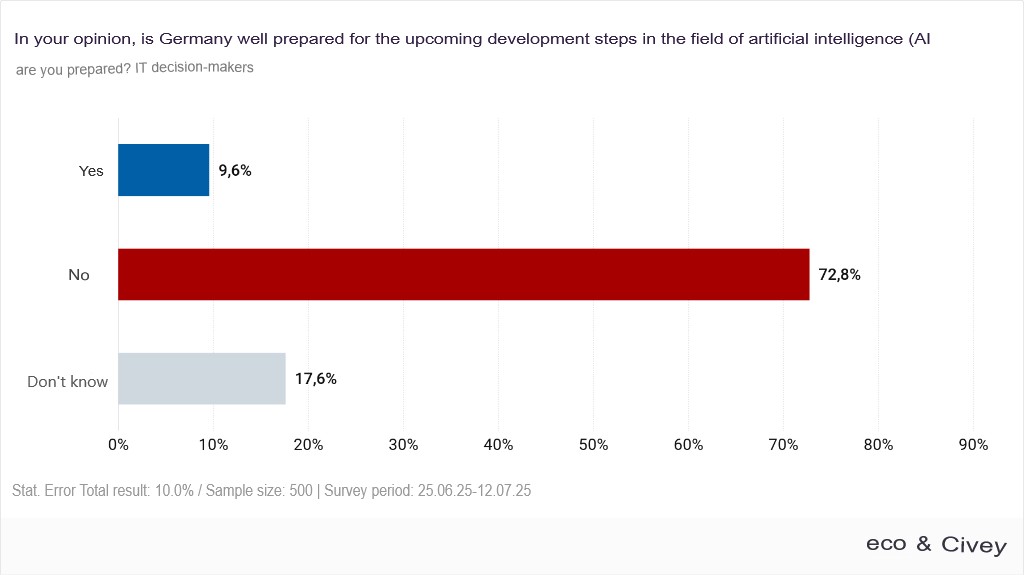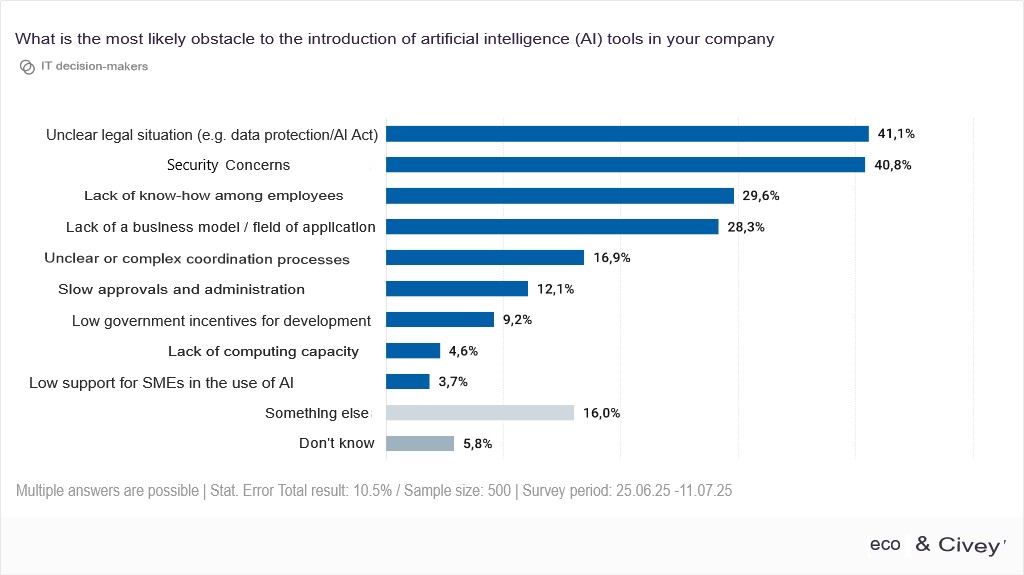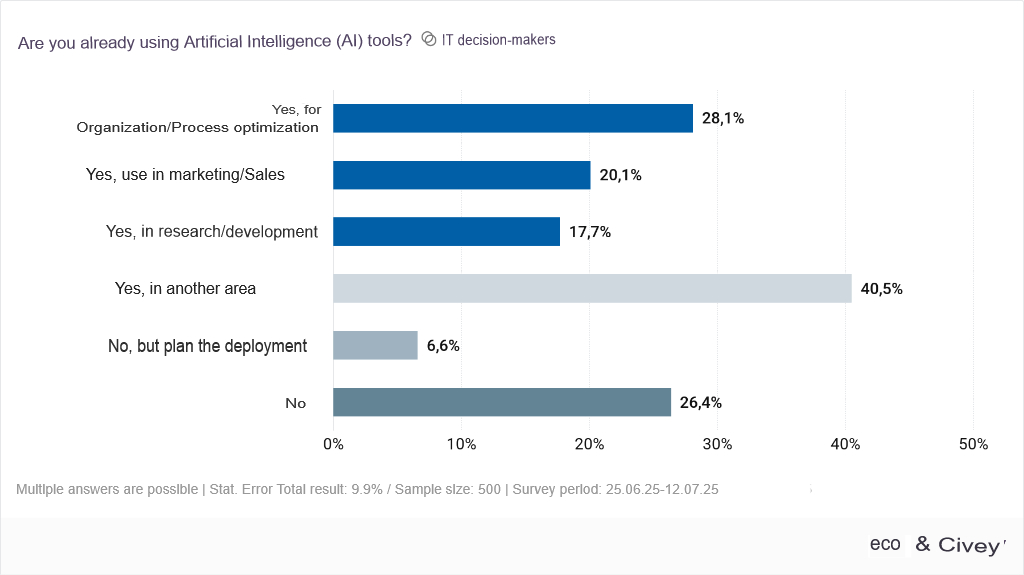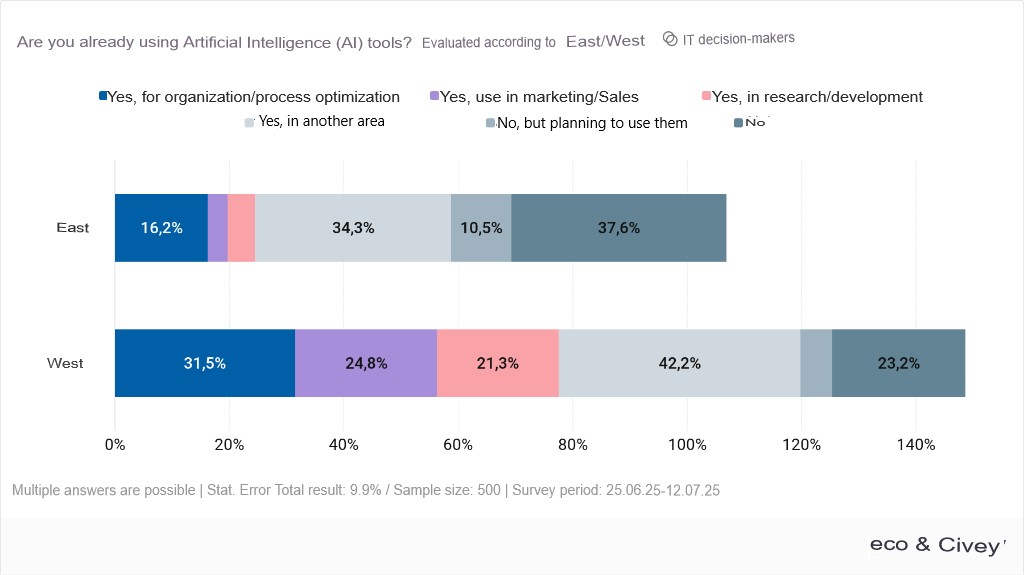- East-West divide: In eastern Germany, 48 per cent of the companies surveyed do not yet use AI, compared to only 28 per cent in the west
- Over a third of IT decision-makers rate Germany's digital standing as insufficient
- According to IT experts, the biggest hurdles to introducing AI tools in their own companies are the unclear legal situation (41%), security concerns (40%), a lack of know-how within the company (around 30%) and a lack of business models and areas of application (28%).
Artificial intelligence (AI) plays a central role in Germany's future viability as a business location. However, IT decision-makers believe that Germany is poorly positioned for the next AI revolution. Only 10 per cent of respondents to the eco Industry Pulse, a recent survey of IT decision-makers* conducted by the market and opinion research institute Civey on behalf of eco – Association of the Internet Industry, believe that Germany is well prepared for upcoming AI developments. Germany also receives poor marks as a digital location. 72 per cent of IT decision-makers in Germany rate the state of digital transformation in Germany as poor to very poor. One third even give it a grade of 6.
Nationwide, a good two-thirds of companies already use AI-based technologies and applications. However, more than a quarter (26.6%) of those surveyed say that the use of AI tools is not even planned. The clear divide between eastern and western Germany is striking here. While 71.2 per cent of companies in the west already use AI, the number of AI-using companies in the east is significantly lower at around 52 per cent.
This digital divide must not be allowed to widen further, as it can only harm Germany as a business location, warns eco Chair Oliver Süme: "The study shows that Germany is continuing to diverge in its use of future technologies. While companies in the west are increasingly turning to AI, mistrust and structural deficits are hampering the transformation in the east. AI is the key to compensating for productivity losses and promoting growth. If we do not take countermeasures and the east does not catch up quickly, we risk a two-tier digital economy."
Unclear legal situation and security concerns are the biggest hurdles
There is a particular need for action when it comes to AI regulation. Forty-one per cent of companies cite the unclear legal situation as the biggest obstacle to their company introducing innovative AI tools. "When it comes to AI regulation, it is still unclear in many areas where the journey is actually headed.
"What is needed now is rapid standardisation, clear definitions and close coordination between the AI Act and existing regulations to avoid duplication and uncertainty. Only then can Germany realise its ambitions as a leading AI location. Alternatively, consideration could be given to postponing the application of the AI Act or parts thereof until the relevant standards are in place," Süme continued.
Other obstacles to the use of AI cited by respondents included security concerns (40%), a lack of expertise within the company (around 30%) and a lack of business models and areas of application (28%).




* Civey surveyed 500 IT decision-makers online for eco between 25 June 2025 and 11 July 2025. The results are representative due to quotas and weightings, taking into account a statistical error of 9.2 percentage points in the respective overall result.




